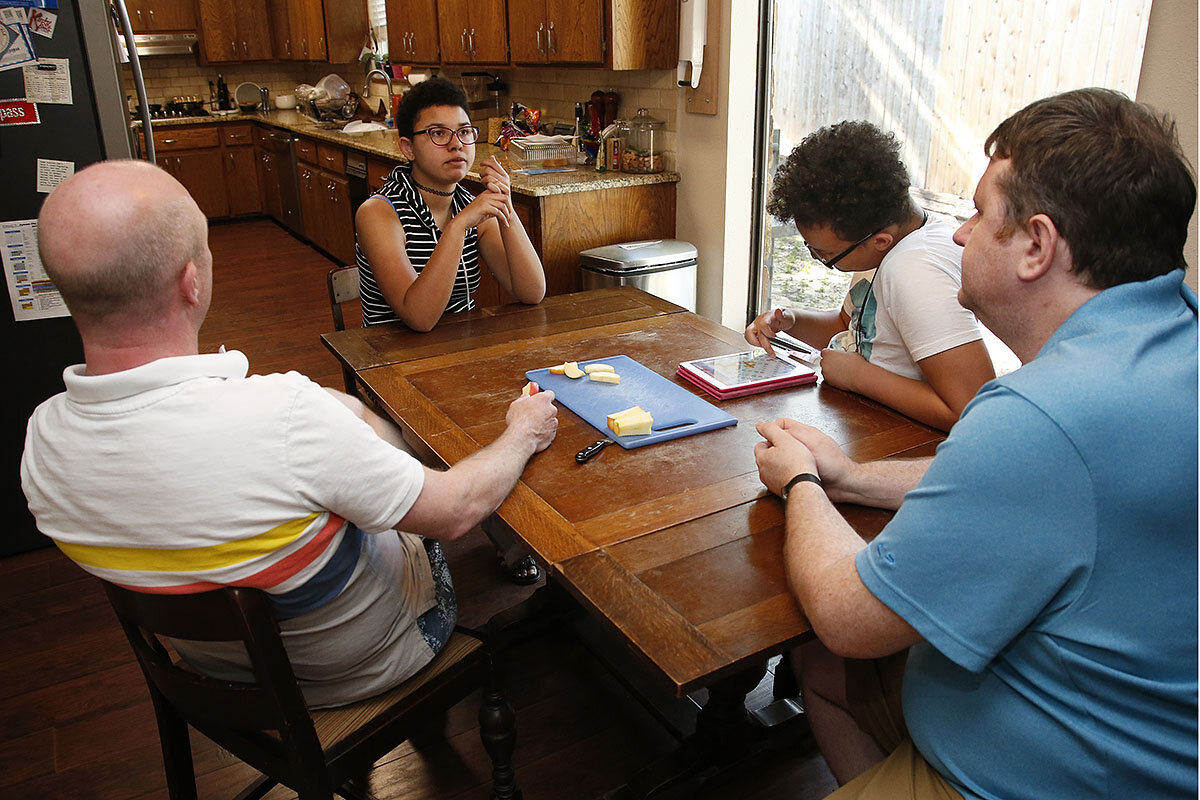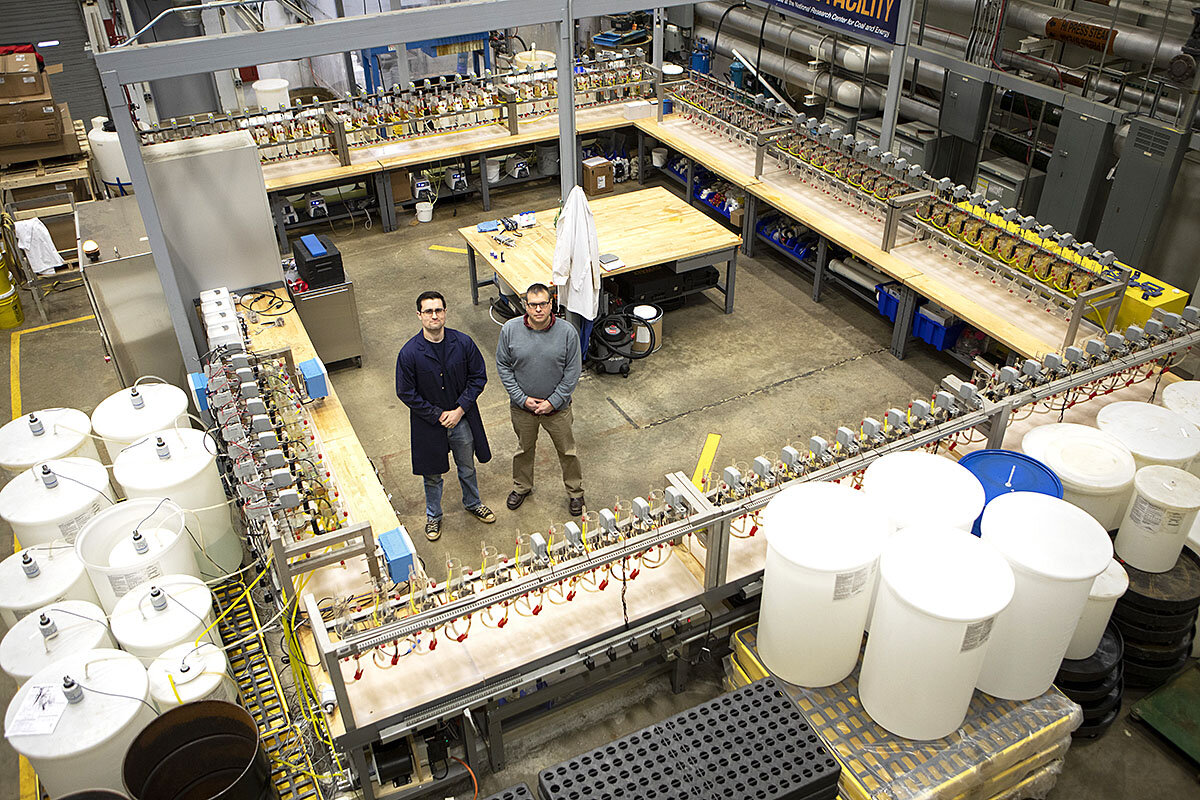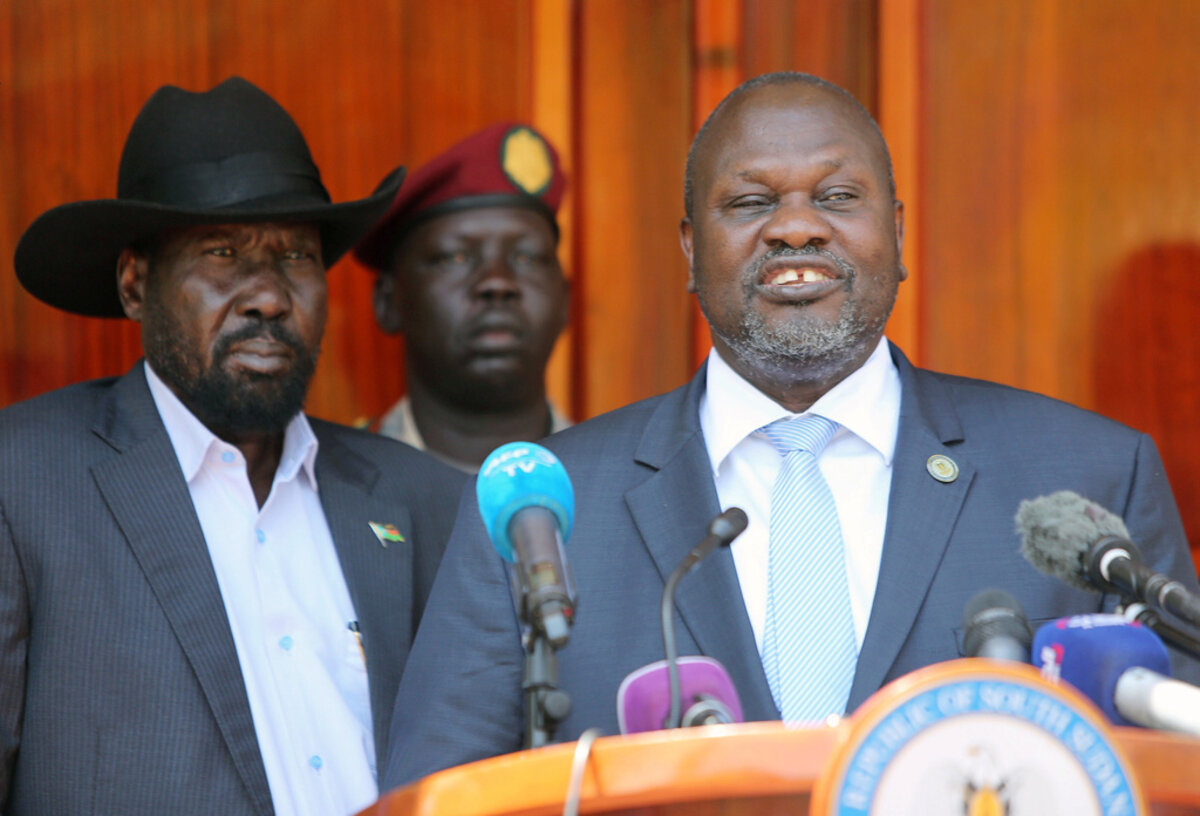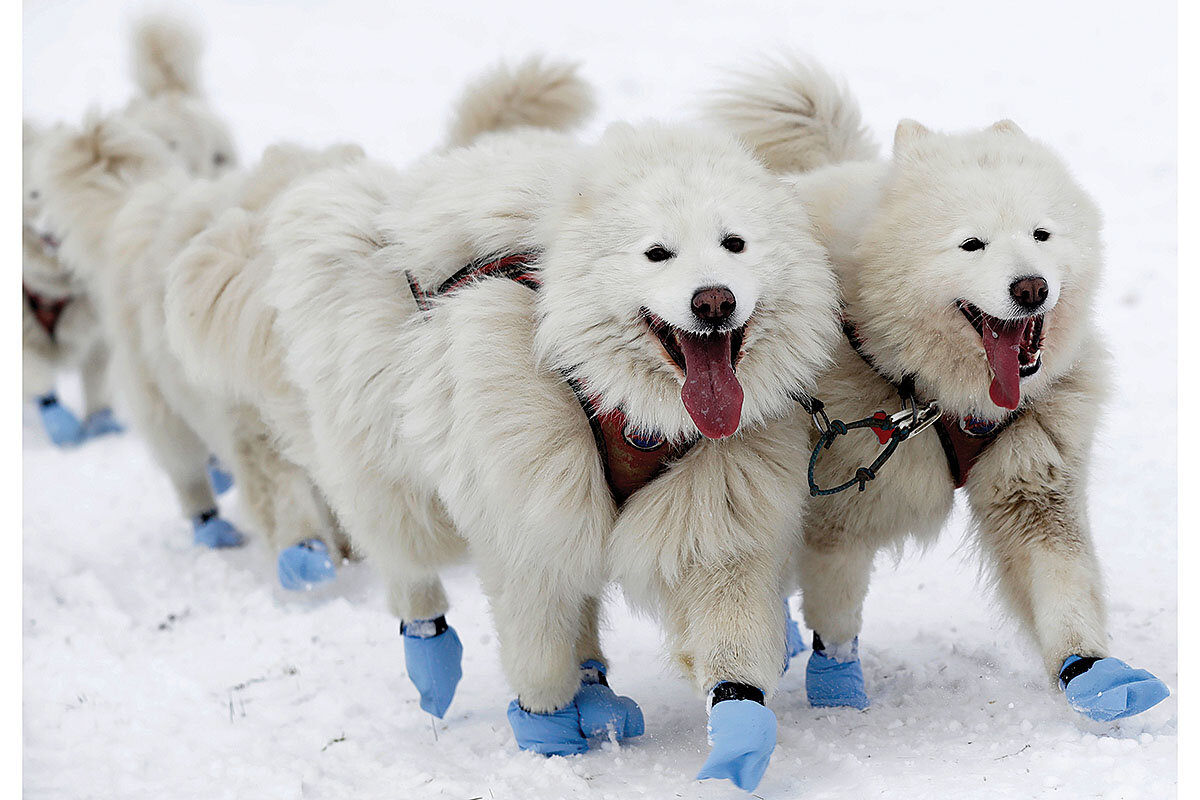How to draw in an American president? India is at the center of the Trump administration’s strategic vision for countering a rising China in Asia. But the country’s real allure may be the promise of adoring crowds.
Monitor Daily Podcast
- Follow us:
 Stephen Humphries
Stephen Humphries
Our stories today examine President Trump’s visit to India, tensions over some adoption agency policies, the economic challenges of the coronavirus, an innovation in the mining industry, and a poetry on wheels program. But first, some good news.
Meghan Markle and Prince Harry only follow one account on Instagram. No, it isn’t the social media site for Netflix’s series “The Crown.” The couple already have enough royal drama in their life. The Duke and Duchess of Sussex are highlighting , whose Instagram posts feature items such as “Greyhound reunites runaway teens with their families” and “The Coral Gardeners are rebuilding dying coral reefs by hand.”
In January, the couple explained that they’re highlighting accounts “that remind us of all the good that is happening in the world.” Given that Prince Harry has accused the tabloid press of bullying Ms. Markle, it’s not surprising that the couple is keen to focus on uplifting news. But they’re also recognizing a growing appetite for it. Websites such as Positive News, The Optimist Daily, and Good News Network offer an alternative to doom-and-gloom sensationalism. The New York Times, MSNBC, and Fox also include silos that focus on instances of kindness, bravery, and goodwill.
The Monitor, too, shines a light on the abundant activity of good in the world. At the same time, we don’t shy away from difficult stories. But we strive to counter undue fear and hopelessness because we believe that understanding the world’s problems and possibilities moves us toward solutions.
That spirit will be on display on Tuesday, Feb. 25 at 5pm EST, when the Monitor’s Washington bureau chief, Linda Feldmann, will moderate a panel discussion “Facts, Fake News, and the Media.” Panelists include New York Times reporter Maggie Haberman and Fox News correspondent Chris Wallace. Those who cannot attend in person can .










